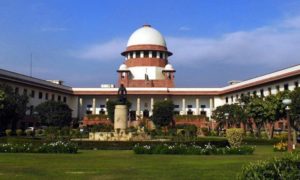 New Delhi: In a key judgement, the Supreme Court on Thursday struck down the electoral bonds scheme by saying that it violates the citizens’ right to information. The apex court observed that it is violative of freedom of speech and expression under Article 19(1)(a) of Constitution.
New Delhi: In a key judgement, the Supreme Court on Thursday struck down the electoral bonds scheme by saying that it violates the citizens’ right to information. The apex court observed that it is violative of freedom of speech and expression under Article 19(1)(a) of Constitution.
The court also asked the banks to stop issuance of electoral bonds. SBI is also directed to submit details of electoral bonds purchased since April 12, 2019 till date to Election Commission. It also held as invalid the amendments made in various laws, including the Representation of Peoples Act and the Income Tax laws.
A five-judge Constitution bench headed by Chief Justice D Y Chandrachud had on November 2 last year reserved its verdict in the matter.
Pronouncing judgement on pleas challenging the validity of the electoral bonds scheme, CJI Chandrachud said, “There is also a legitimate possibility that financial contribution to a political party would lead to quid pro quo arrangements because of the closed nexus between money and politics. Quid pro quo arrangements could be in the form of introducing a policy change or granting a license to the person making financial contribution to the political party in power. The electoral bond scheme and the impugned provisions to the extent that they infringe upon the right to information of the voter by anonymizing contributions through electoral bonds are violative of Article 19(1)(a).”
“One of the factors, which contributes to political inequality, is the difference in the ability of persons to influence political decisions because of economic inequality. Economic inequality leads to deferring levels of political engagement because of the deep association between money and politics,” he said.
An Electoral Bond is an instrument in the nature of a promissory note or bearer bond which can be purchased by any individual, company, firm or association of persons provided the person or body is a citizen of India or incorporated or established in India. The bonds are issued specifically for the purpose of contribution of funds to political parties.
The Centre in an affidavit had said that the methodology of the Electoral Bonds scheme are “completely transparent” mode of political funding and it is impossible to get black money or unaccounted money.
